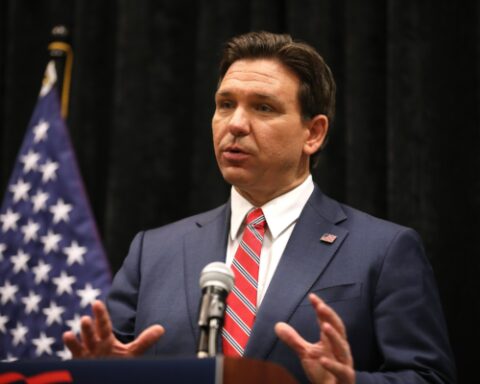A federal judge in Miami has reportedly now ordered the migrant detention center nicknamed “Alligator Alcatraz” to begin winding down operations, siding with environmental groups and the Miccosukee Indian Tribe of Florida who argued that the site endangered the Everglades’ fragile ecosystem.
Judge Kathleen M. Williams, appointed by former President Barack Obama in 2010, issued the ruling this week, directing officials at the facility to cease accepting new detainees and to dismantle existing infrastructure within 60 days.
That includes fencing, lighting, gas lines, and sewage waste receptacles. The judge also barred any further construction at the site.
The case was driven in part by the Miccosukee Tribe, who contended that the facility’s presence posed risks to their food and water supply.
In her decision, Judge Williams leaned heavily on long-standing commitments to protect the Everglades, a region that has been the focus of bipartisan conservation efforts for decades.
“Every Florida governor, every Florida senator, and countless local and national political figures, including presidents, have publicly pledged their unequivocal support for the restoration, conservation, and protection of the Everglades,” Williams wrote. “This Order does nothing more than uphold the basic requirements of legislation designed to fulfill those promises.”
The facility, which opened in July, had been championed by leading Republican figures. President Donald Trump, Florida Governor Ron DeSantis, and Homeland Security Secretary Kristi Noem toured the center upon its launch, touting it as a necessary expansion of immigration enforcement amid a surge in illegal crossings.
The move reflected a broader push by federal and state leaders to strengthen Immigration and Customs Enforcement (ICE) operations nationwide.
“Alligator Alcatraz” quickly drew attention not only for its location in the Everglades but also for the criticisms leveled against its conditions. Detainees and their families described troubling circumstances inside, pointing to reports of maggots in food and a mosquito infestation so severe that one detainee said there were “more mosquitoes than water.”
The ruling represents a setback for those advocating for stronger immigration enforcement infrastructure in Florida and across the country.
For Republicans, the detention center had been emblematic of a tougher stance on border security and illegal immigration, a policy priority in the Trump era that continues to resonate with voters frustrated by what they see as lax federal enforcement.
By contrast, the ruling was hailed by the facility’s opponents as a victory for environmental protection and tribal rights. For Judge Williams, the decision was framed as a straightforward matter of honoring legislative commitments to the Everglades’ preservation.
While the order ensures that “Alligator Alcatraz” will be dismantled within two months, it also highlights the ongoing tension between two competing priorities: the urgent need for secure immigration facilities amid a national crisis, and the enduring political and cultural importance of safeguarding one of America’s most unique natural landscapes.
[READ MORE: DeSantis Sends Lieutenant Governor to California to Retrieve Illegal Immigrant Accused of Deadly Crash]









